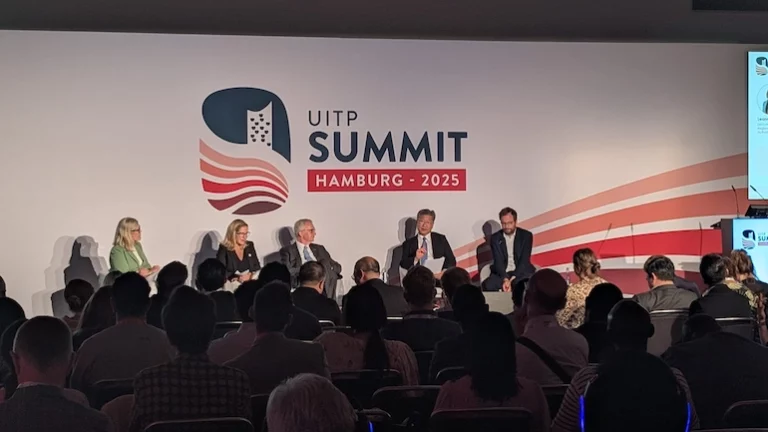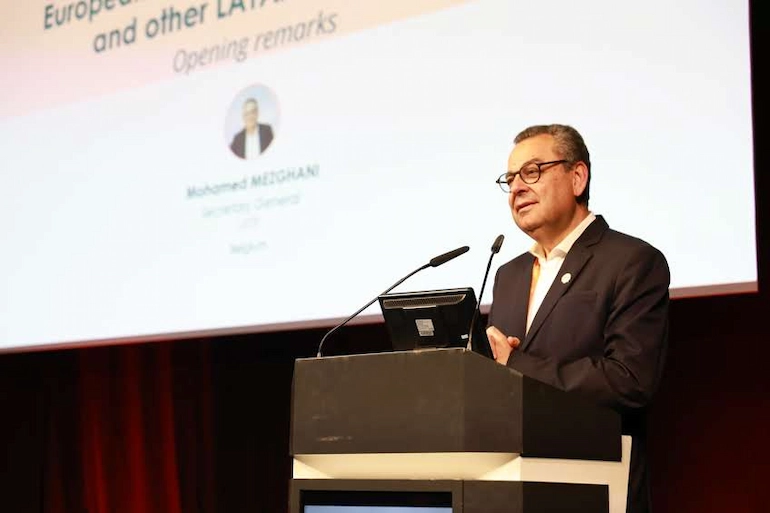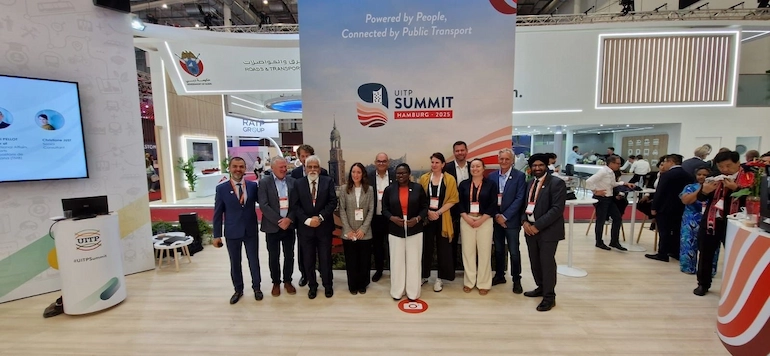Day 3 Recap: Public transport, thriving cities, and putting people first

Day 3 at the UITP Summit in Hamburg and the momentum keeps moving forward! Participants crisscrossed the Hamburg Messe venue today, dipping in and out of sessions on automated mobility, regional adaptation, resilience, and much more.
Take a look at the highlights of the day and be sure to join us tomorrow as we gear up for the closing ceremony of the 2025 UITP Summit!
Addressing regional differences in mobility models
At today’s breakfast session, focusing on the practical implementation of European mobility models in Mexico and other Latin American countries, speakers reiterated the regional differences that must be taken into account. The region’s cities are growing fast which creates pressure on mobility systems.
UITP Secretary General Mohamed Mezghani spoke at the session, emphasising a balanced modal split and avoiding car dependency. Comparing Europe and Latin America, he noted that applying mobility models is not a simple copy and paste job, it is about how we can learn from each other.
Cities in Latin America are growing fast and thus creating more pressure on mobility systems. Angie Palacios, Transport Specialist at the Development Bank of Latin America (CAF), highlighted the differences between cities in Europe and Latin America. But also noted how the latter is very diverse with a different starting point in terms of infrastructure gaps.
Regarding Europe, she stated there are “strong governance institutions in EU cities, that’s what we are working towards” and that we need strong political leadership to have strong public transport systems.

Putting people first
In a focused session on a shared and automated future for customers and companies, CEOs Alexandra Reinagal of Wiener Linien and Jan Luedtke of VIA spoke about shared and automated technologies and services.
Alexandra Reinagal noted that citizens “don’t only take one mode like the classical transport modes… but also combine with shared mobility offerings.” She remarked that they do not necessarily have to run these services, but to coordinate and learn how to tender them and that “customer needs must be at the centre of our thinking.”
In the session “Changing Landscape For Jobs? Automated Mobility on a Large Scale”, discussions centered around the evolving roles of staff in autonomous mobility, with a focus on upskilling and reskilling. As Nathaniel Ford, CEO of the Jacksonville Transportation Authority, said, “we are not just preparing for the transformation, we are empowering our people to lead it.
Putting people first also struck a chord during the session on Brazil’s public transport developments in the framework of COP 30. Maína Celidonio, Secretary of Transport for Rio de Janeiro, touched on how Rio is renewing its several thousand strong bus fleet and stressed that public transport is “the best climate policy”.
Strengthening the public transport workforce
UITP Academy hosted a Regional Training Centre (RTC) Recognition Ceremony to acknowledge and thank our valued RTC partners. UITP President Renée Amilcar was on the ground and spoke about the importance of our RTC network and the key role these centres play in training hundreds of participants each year and advancing talent across the public transport sector.
Many of our partners were at the ceremony, which also included the official signing moments with Shenzhen Bus Group, Metro de Santiago, and later, TechnologieRegion Karlsruhe. The event included expert lead trainers sharing insights on training and knowledge exchange in strengthening the public transport workforce.

The power of resilience
Today’s edition of Elevate Talks looked at building resilience with special guest Andy Lord, Commissioner, Transport for London. The discussions explored power failures and cyberattacks. Risk mitigation is critical and it was noted how there are often things upstream out of the control of public transport, such as national grids.
In short, being prepared is not a choice but a must, and that we need to assume a cyberattack will happen and that it will be successful. We need to be ready.